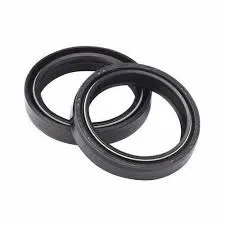10 月 . 02, 2024 19:04 Back to list
High Temperature Resistant Rubber Gaskets for Reliable Sealing Applications in Extreme Conditions
High Temperature Rubber Gaskets Essential Components for Extreme Conditions
In many industrial applications, particularly in environments involving extreme temperatures, high temperature rubber gaskets play a crucial role. These gaskets are specifically designed to withstand high levels of heat without losing their structural integrity, sealing capabilities, or flexibility. As industries such as automotive, aerospace, and manufacturing continue to evolve, the demand for reliable and effective sealing solutions has never been greater, making high temperature rubber gaskets indispensable.
Understanding High Temperature Rubber Gaskets
High temperature rubber gaskets are made from specialized rubber compounds that can endure temperatures typically exceeding 200°C (392°F) and, in some cases, even reaching upwards of 300°C (572°F) or more. Common materials used in the fabrication of these gaskets include silicone rubber, fluorocarbon (Viton), and other heat-resistant elastomers. Each material has unique properties that make it suitable for specific applications.
- Silicone Rubber Known for its exceptional flexibility and resilience, silicone rubber gaskets are resistant to extreme temperatures and aging. They are widely used in the food industry, automotive applications, and electronics, where thermal stability is paramount.
- Fluorocarbon (Viton) This material is favored in applications that require chemical resistance as well as high-temperature stability. Viton gaskets can endure exposure to harsh chemicals and are often employed in the oil and gas industry, as well as in chemical processing plants.
- Other Elastomers Depending on the specific requirements of the application, various other elastomer compounds may be used, including EPDM, neoprene, and nitrile rubber. These materials are selected based on their resistance to specific environmental factors, including UV exposure, ozone, and physical wear.
Applications of High Temperature Rubber Gaskets
High temperature rubber gaskets find applications across several industries
1. Automotive In the automotive sector, these gaskets are crucial for engine components, exhaust systems, and turbochargers, where they provide effective sealing against high-pressure gases and fluids, while also withstanding extreme temperatures.
2. Aerospace In aerospace applications, the need for lightweight yet durable materials is critical. High temperature rubber gaskets are used in fuel systems, combustion engines, and environmental control systems to ensure safety and reliability at extreme altitudes and temperatures.
high temperature rubber gasket

3. Manufacturing In manufacturing plants that utilize high-heat processes, such as metalworking, ceramics, and plastics, these gaskets are integral to machinery and equipment, preventing leaks, reducing energy loss, and enhancing operational efficiency.
4. Energy The energy sector, particularly in oil and gas extraction and refining, relies on high temperature rubber gaskets to maintain seals in drilling operations, pipelines, and refineries where both heat and pressure are significant factors.
Advantages of High Temperature Rubber Gaskets
The use of high temperature rubber gaskets offers numerous advantages
- Temperature Resistance These gaskets are engineered to resist degradation under extreme temperatures, ensuring long-lasting performance in high-stress environments.
- Chemical Resistance Many high temperature rubber gaskets exhibit remarkable resistance to harsh chemicals, making them suitable for diverse applications across multiple industries.
- Durability The robust design and material composition of high temperature rubber gaskets contribute to their durability, ensuring they maintain their sealing abilities even under challenging conditions.
- Cost-Effectiveness Although the initial investment may be higher than standard gaskets, the longevity and reliability of high temperature rubber gaskets often lead to lower maintenance costs and decreased downtime, making them a cost-effective choice in the long run.
Conclusion
High temperature rubber gaskets are essential components in various industries, providing vital sealing solutions that endure extreme temperatures and challenging conditions. As technology advances and the demand for high-performance materials persists, the importance of these gaskets in ensuring the safety, efficiency, and integrity of industrial operations will only continue to grow. Organizations must choose the right gasket material based on specific application requirements, ensuring optimal performance and longevity.